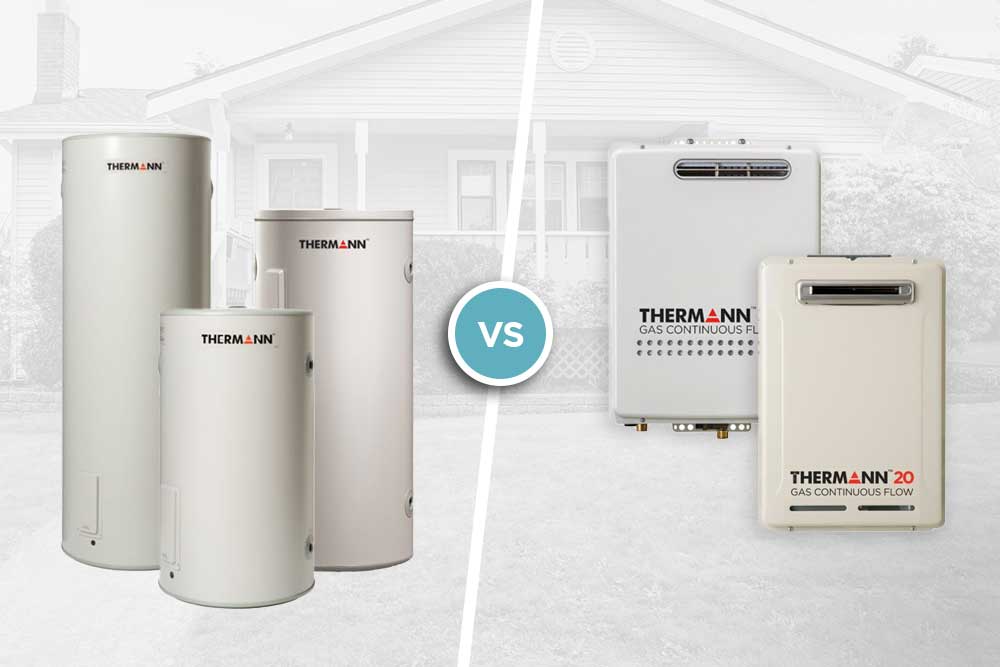Water heaters are a necessity in every household. The ease and convenience that water heaters provide on the day to day can be overlooked, until, of course, hot water is nowhere to be found because the installation of your hot water system was done incorrectly, or not suited for your specific use, or even damaged by external factors out of your control. So how do you figure out which water heater will suit your needs the best? You’ll have to choose between a traditional and a tankless water heater, and these options have pros and cons that will provide you with the knowledge of which one is better suited for your household’s personal use.
What’s The Difference Between a Traditional and Tankless Water Heater?
A traditional water heater makes use of a water tank to store hot water in for immediate use. The cost of installing this hot water system depends on many factors: the size of the tank, the size of your plumbing system, and the specifics of which taps and showers will be connected to the hot water tank.
A tankless water heater is just that: tankless! This relies on heating your water on demand by the usage of gas or electric coils, depending on the type of tankless water heater that you are using for hot water system installation or replacement.
What Are the Pros and Cons of Each Option?
Traditional hot water systems are more affordable to install, and are tried and tested. The good thing about having your hot water in a tank is that if the power goes out, or you lose water supply, you’ll have fresh water in a tank for immediate use, so you won’t go without as quickly as you would without the tank. Aside from this, it’s also easy to do hot water system installation for this type of water heater as it is easy to integrate into your existing plumbing.
Traditional hot water systems can consume a lot of energy as at any given time, it is heating water in the storage tank for standby. If it is not maintained properly, it does have a shorter lifespan due to external elements, and a leak or a break in the tank can cause liters of water to burst out of the tank and cause property damage if not kept on top of. And, if you are running your dishwasher, washing machine, and the shower all at the same time, you may end up having to wait for the tank to fill up again.
Tankless hot water systems are efficient, not just with energy, but with space, too, as you don’t need a tank on your property. These systems usually have longer warranties, as well, so you can rest easy if something breaks or gets damaged throughout your usage.
Tankless hot water systems are a bit more expensive to install and can involve changing up your plumbing to integrate, and if you’re not careful, the initial cost may not be worth the savings in the long run, so it’s always a good idea to do your research.

